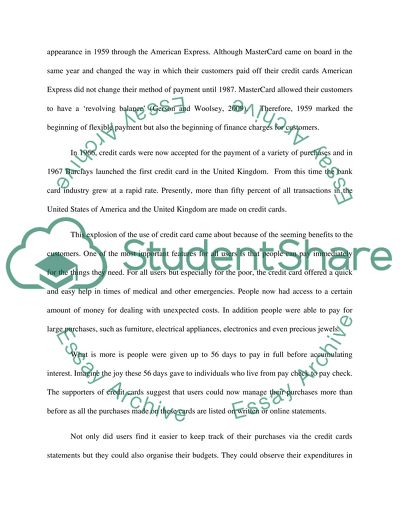Cite this document
(“Credit cards Essay Example | Topics and Well Written Essays - 1250 words”, n.d.)
Retrieved from https://studentshare.org/history/1425285-credit-cards
Retrieved from https://studentshare.org/history/1425285-credit-cards
(Credit Cards Essay Example | Topics and Well Written Essays - 1250 Words)
https://studentshare.org/history/1425285-credit-cards.
https://studentshare.org/history/1425285-credit-cards.
“Credit Cards Essay Example | Topics and Well Written Essays - 1250 Words”, n.d. https://studentshare.org/history/1425285-credit-cards.


